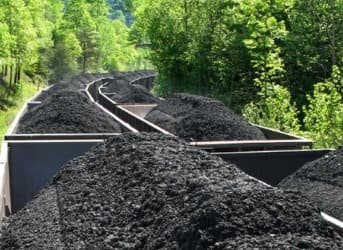As domestic use declines, will Canadian coal find new Asian export markets?
In a world increasingly concerned about greenhouse gas emissions, King Coal, the fuel that ignited the Industrial Revolution more than two centuries ago, has taken quite a beating.
This is particularly evident in energy superpower Canada. The proverbial economic “canary in the coal” mine illustrating the state of Canadian coal mining is the 24 December announcement by Canada's Sherritt International Corp., Canada’s largest producer of thermal coal, that it would sell its coal business for $885 million.
Sherritt International Corp. is selling its entire royalty portfolio and stake in coal development assets to a group led by mining company Altius Minerals for $450 million, while Westmoreland Coal will buy Sherritt 's operating coal assets, Prairie and Mountain Operations, for $435 million. Sherritt CEO David Pathe said, "(The sale) ... gives us the capacity look at more opportunities to grow those businesses where we feel we have a real differentiating experience," to focus in the future on its nickel and oil businesses. Hardly a minor player in Canada’s mining market, Sherritt International Corp. generated $1.87 billion in revenue in 2011. Sherritt has coal mines in Alberta and Saskatchewan, and its coal revenue was derived from its ownership of Prairie Mines and Royalties Ltd., which produced over 30 million tons of coal for electricity production in 2011.
Most interestingly, Pathe said nothing about the future of the Carbon Development Partnership, an indirect 50-50 partnership between Sherritt International Corp. and the Ontario Teachers' Pension Plan to develop approximately 12 billion tons of undeveloped coal reserves and resources in western Canada in a “clean coal technology” gasification project, producing coal syngas, which in turn can produce hydrogen, clean diesel and synthetic natural gas.
Why is Sherritt International Corp. bailing out from coal production?
Most likely because it sees the fuel’s future as being in decline. According to the U.S. government’s Energy Information Administration, Canada’s domestic use has been shrinking. “The decline is largely the result of Canadian initiatives to reduce coal-fired electric generation. In an effort to reduce greenhouse gases, Canadian federal and provincial governments have announced policies to move away from coal-fired generation. Beginning July 1, 2015, the Canadian federal government plans to enforce a strict performance standard for all coal-fired units. The addition of the new regulations will likely encourage utilities to retire aged coal-fired generators and shift to lower- or non-emitting fuels (i.e., natural gas and renewable energy). Steam coal demand in Canada, which accounted for approximately 88 percent of total coal consumption in 2011, is primarily used for power generation. In 2011, according to the latest data available, about 16 percent of Canada's electricity was generated using coal, down from 18 percent in 2010. A shift to lower- or non-emitting fuels may cause further decreases in coal's share of total generation.”
But not everyone is taking such a downbeat view of Canada’s coal future. Vancouver-based Teck Resources Ltd. believes that it might yet prove profitable to reopen its Quintette mine in British Columbia, 435 miles northeast of Vancouver. Quintette opened in 1982, with its output supplying Japanese steel mills, but it closed in 2000 when coal prices plummeted. Reopening Quintette would cost $804 million and create 2,000 construction jobs and 500 full-time mining jobs. Before proceeding however, Teck Resources Ltd. is waiting for prices to strengthen for coking coal, used to produce steel. Teck Resources Ltd. spokesman Chris Stannell said, “We are continuing to proceed with detailed engineering work at the Quintette project so that if market conditions are favourable, we will be in a position in early 2014 to decide to proceed with the reopening, which could result in commercial production in mid-2015.”
And since 2009 a subsidiary of China Investment Corp. has held a 17 percent stake in Teck Resources Ltd.
So, is Canada’s coal chalice as regards the Asian market half empty or half full? Not all shareholders are happy with Sherritt’s decision to sell off its “highly profitable royalty portfolio” of coal operations, leading Halifax-based investment company and major shareholder Clarke Inc., which holds a 5.2 percent stake in Sherritt International Corp., to officially ask the company to call a shareholder meeting to replace some of the miner’s independent directors. Clarke Inc. George Armoyan. “A lot of people have been dissatisfied with performance of the stock. We want to have ownership representation on the board.”
So, as Canada’s domestic use of coal declines, will Asian thermal power plants and blast furnaces lead to increased coal exports? At least one Canadian investment company and mining concern are betting on it.
By. John C.K. Daly of Oilprice.com


















